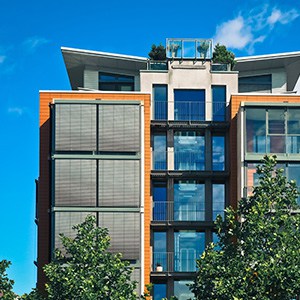Purchasing a condo is not as easy as it sounds. There are a lot of factors that play a crucial role in deciding the value as well as policies of the condo that one is planning to purchase. One of the most important things to consider here is- whether the condo you are planning to purchase is a warrantable one or a non-warrantable one. Thus, it becomes necessary to understand what it actually means and why is it so important to know about it beforehand.
What Is a Non-Warrantable and a Warrantable Condo?
A non-warrantable condo is the one in which the loan cannot be sold to Freddie Mac or Fannie Mae and thus, it’s considered to be a riskier property to purchase or grant a loan. (1) On the other hand, a warrantable loan is eligible for selling to Freddie Mac or Fannie Mae.
Warrantability plays a huge role in deciding whether the loan must be approved or not.
A non-warrantable condo is a condominium property in which the loan is not eligible to be sold to Freddie Mac or Fannie Mae, and as such, they are considered by most banks to be more “risky.” Freddie Mac and Fannie Mae have established criteria when it comes to evaluating condominium developments. Conversely, a warrantable condo loan can be sold to Freddie Mac or Fannie Mae. Many times, the warrantability of a development is the deciding factor for many lenders, and can have a large impact on whether or not your loan will be approved.
– Brad Pauly, Pauly Presley Realty
Characteristics That Make a Development Non-Warrantable
- The condo is a part of the project which is not yet completed.
- A project development in which the developer has not yet given the control of things to the owners’ association of the development.
- A condo development that offers short-term rentals.
- Apart from these characteristics, the reasons/ factors mentioned below are also a clear indication of a project not being warrantable.[1]
Which Are the Factors That Make a Condo Non-Warrantable?

- Owner occupancy of less than 50 percent
- That is, in the condo development, less than half the condominium units are occupied rentals or tenant occupied instead of the condo units themselves.
- Having a 10% ownership in the condo project development
- In case 10% or more of the development is known by a single owner, the development is considered to be a little unstable. Basically, what it means that too significant a share of the project is owned by a single person. Thus, the control of that single owner is too much. This can have an impact on various other policy as well as other decisions that involve the rights of owners.
- Delinquency of 15%
- If the condominium project has more than 15 percent of its owners more than 30 days delinquent at the time of any inquiry, the condo is considered to be a non-warrantable one.
- 10% Cap Reserve [2]
- All those developments that need to be shown as warrantable must have a line item in the budget they share yearly which shows that their part of the development is making a contribution of 10% of their yearly income into a Capital Reserve fund. This fund is then utilized for different purposes like foundation repairs, roofs, irrigation systems, maintenance of different elements, etc.
- There can be quite a few other reasons, apart from the ones mentioned above. However, these four are the most prominent ones that are often observed behind non-warrantable condominiums.
You can watch this video to learn more about this topic.
How to Find a Non-Warrantable Condo Lender

The reason behind this is quite simple- you are not the only individual who is responsible for the maintenance or any other thing associated with the condo. It must also depend on the condo association to take care of certain things.
The lender would want to have a clear idea about the property’s condition, whether it is at a good risk or not or if there are any kind of financial issues associated with the development of the condominiums.
Fannie Mae and Freddie Mac also have a definite set of requirements that the condo associations have to meet and a minimum fund has to be there in reserve, etc.
All these factors are very crucial while making a condo purchase.
Apart from these, the condo location, amenities being provided, the reputation of its developers and transport are few other things that you must consider while finalizing on a condominium purchase.
In case you wish to purchase a condo that is non-warrantable, there are three ways in which you can do it:
- You can buy the condo with cash.
- You can purchase the condo unit on land contract.
- You can buy it with the help of a portfolio loan.
Final Thoughts
Out of these options as well, it is very difficult to actually have so much cash in hands to make the entire purchase with it in one go. Thus, think properly about other options if you really wish to buy one. However, it is advised to explore more these ways instead of blindly choosing one in haste. Buying a condo is a big decision. Thus, you must make sure that you are making it wisely and are sure as well as aware of the consequences of it if any.
For news, updates, and exclusive access on all new and upcoming pre-construction condos in Canada, visit Precondo.
Reference:
1 https://www.investopedia.com/terms/n/non_conforming.asp
2 https://www.investopedia.com/terms/r/reservefund.asp

